Welcome!
Welcome to the residency and welcome to your first month in the FMC. The Intro to Family Medicine Rotation is intended to provide the foundations for success in the Family Medicine. Family medicine education centers around the FMC and the quicker you are comfortable in the setting and view the FMC as your home, the better equipped you will be in accomplishing your goals. The month will concentrate on the following key areas:
Mastery of Epic
Operational understanding of the FMC
Foundational skills in core Family Medicine Topics:
Preventive Care
Women's Health, including PNC
Process Improvement/QI
Home Visits
Intro to procedures (POCUS)
Mastery of Billing
Building of a core patient panel
Please review the below methods which will outline the requirements for the month. Also be sure to visit the resources under "FMC" on the top navigation bar of this webpage.
We hope you have a wonderful month! Do not hesitate to contact any of the faculty if you have any questions or concerns.
Requirements
Below is a listing of the requirements during the month. Each item listed is reviewed in greater detail further below, and this is only intended to provide one central location of the listed requirements. During the month you will have designed JIT time and Inbasket Time. Some of the JIT time will be scheduled with a Chief resident or faculty member and are intended to provide you opportunities to have questions answered, learn tips on managing the in basket, create or learn new smart phrases, or answer other residency questions (New Innovations for example). When you are not scheduled with anyone, use the time to complete the requirements, study, and take care of your inbasket.
Requirements:
Complete 15 Billing Sheets
Complete Billing Quiz
Complete home visit pre and post work (will be assigned half day with Dr. Goroncy)
Complete Preventive Care KSA
Complete OB Canvas Modules
#1: Routine Prenatal Care
#2: Weight Gain and Obesity in Pregnancy
#3: Genetic Screening in Pregnancy
#4: Immunizations in Pregnancy
#5: Exercise in Pregnancy
Complete POCUS Module I and IFM U/S FMC/Inpatient session (scheduled)
Complete Radiology Curriculum (will be contacted by Dr. Mount)
Work on ABFM Practice Improvement Project
Billing
By the completion of the month, each resident will be able to provide the correct CPT and diagnosis code for E/M visits, WCC, PNC Visits, and Adult Preventive Visits. To meet this goal, each resident will be required to complete the following:
Review the below Billing Presentation (When presentation references the handout, it is referencing the billing worksheet)
Complete the Billing Quiz
Completion of 15 Billing Worksheets
Required Reading:

































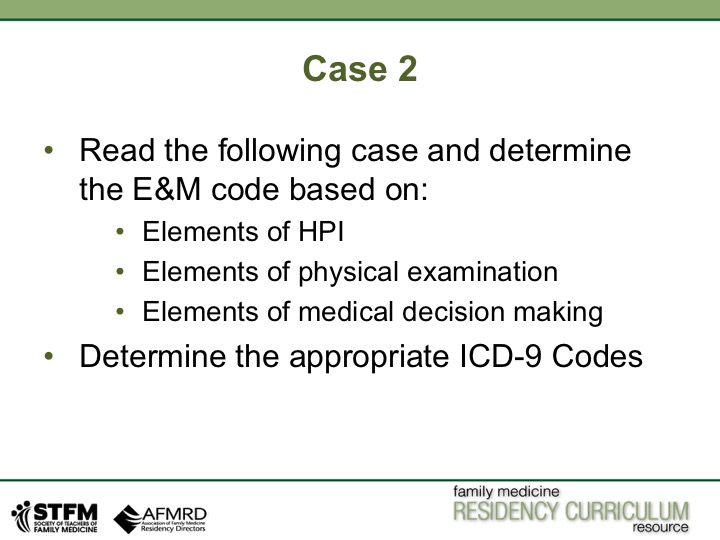
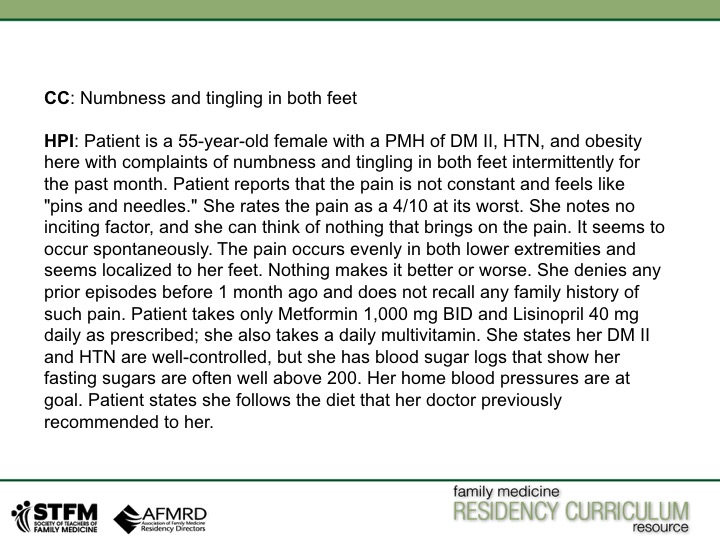
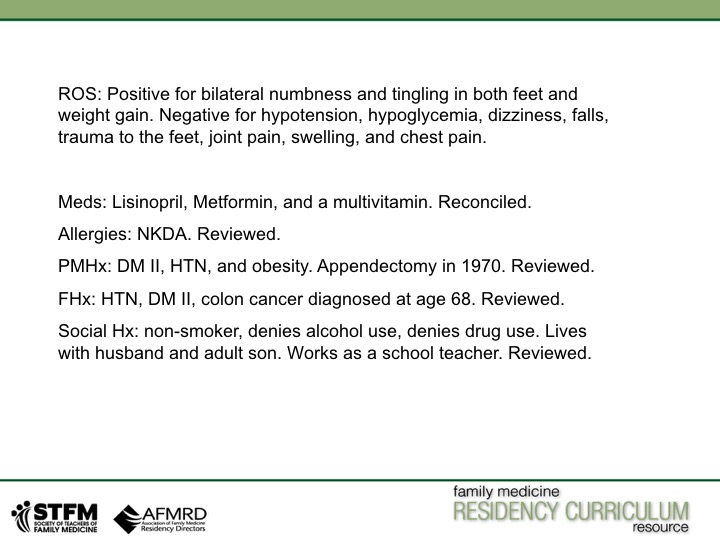
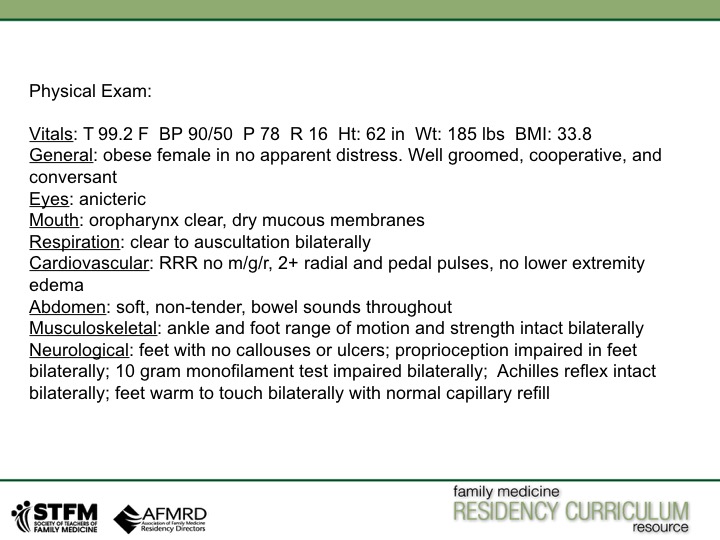
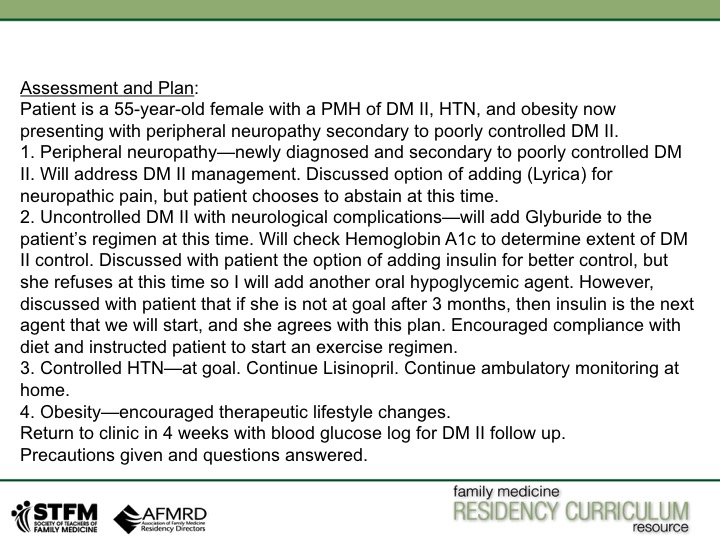
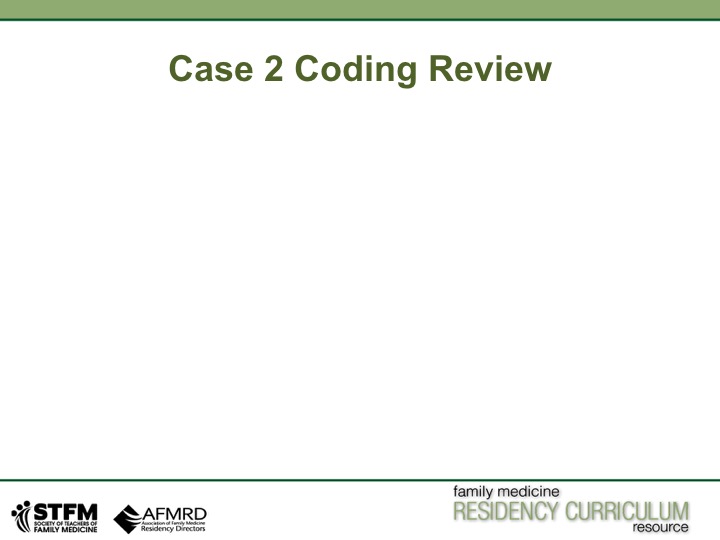
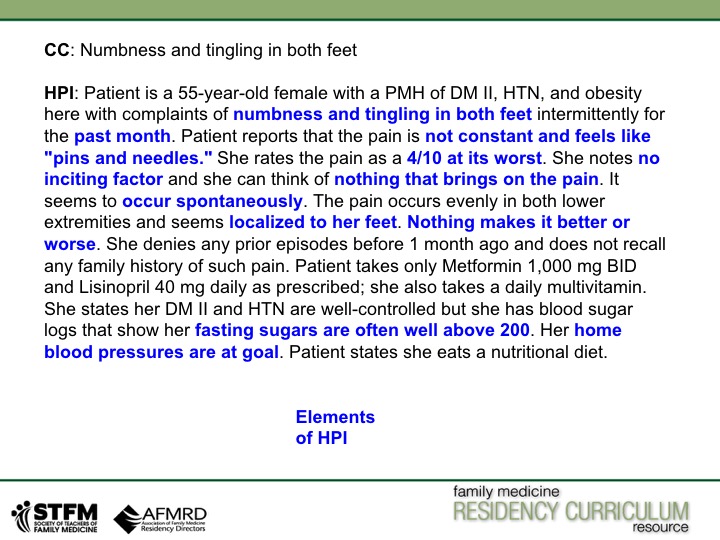

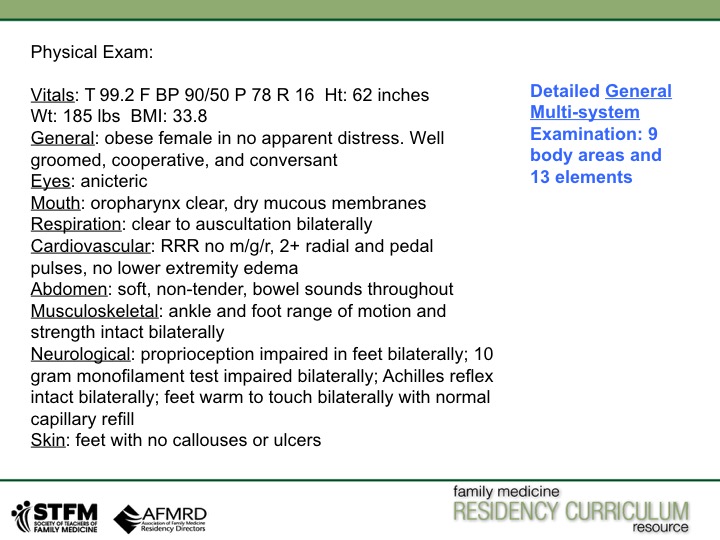
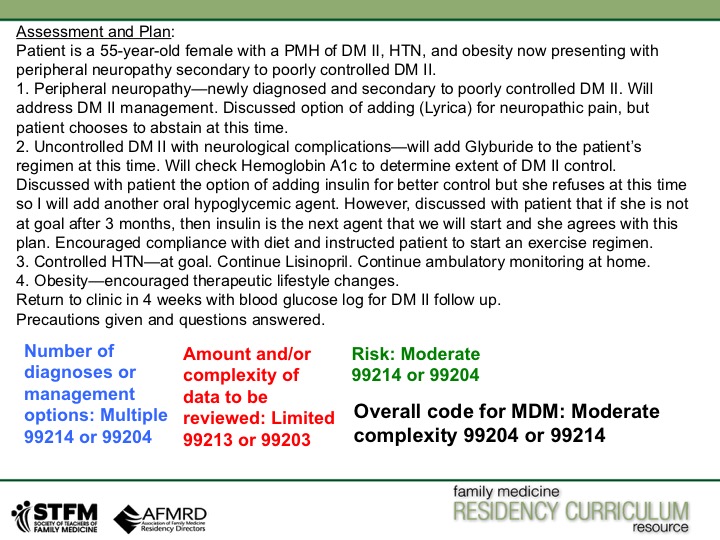
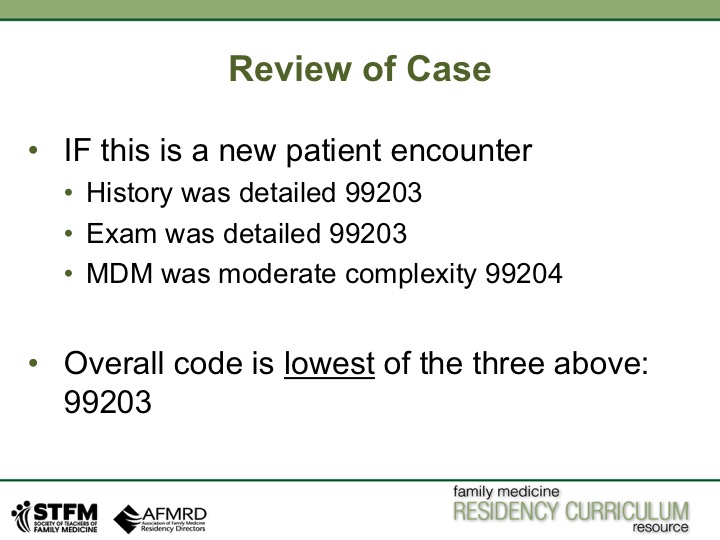
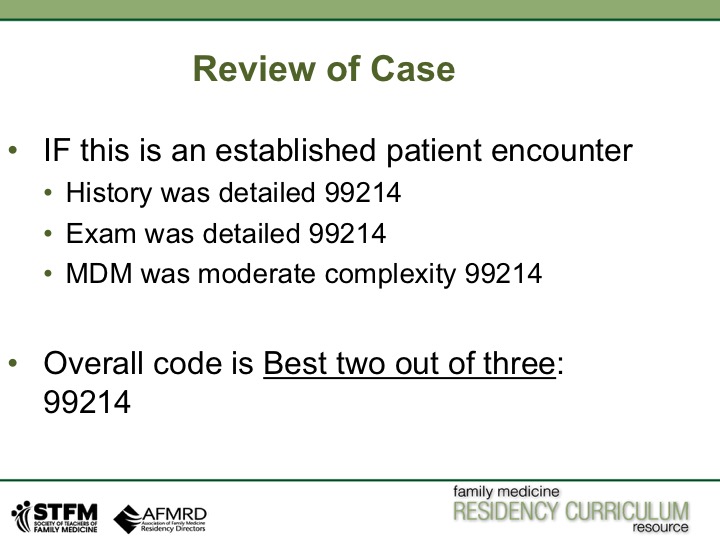
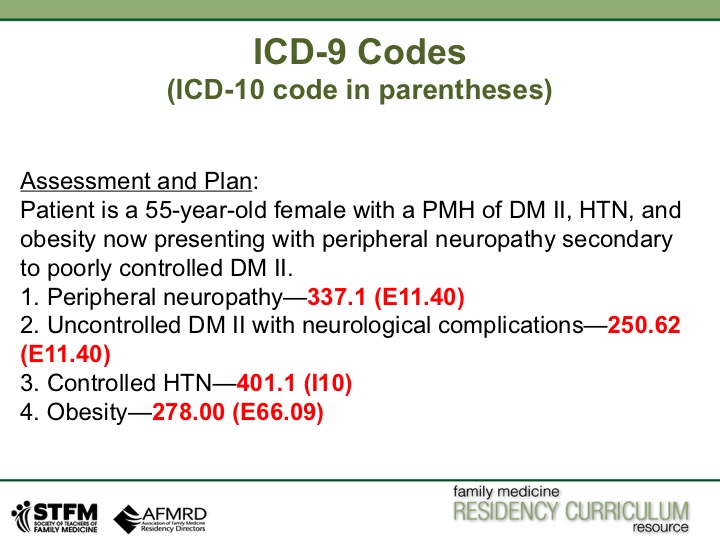
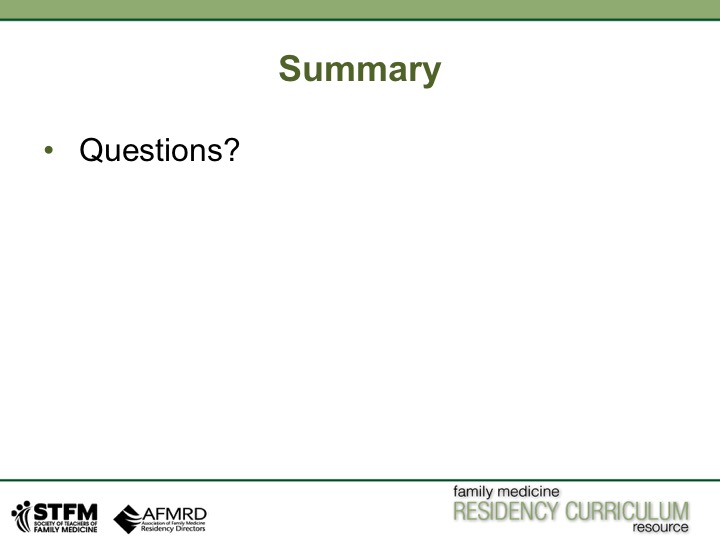
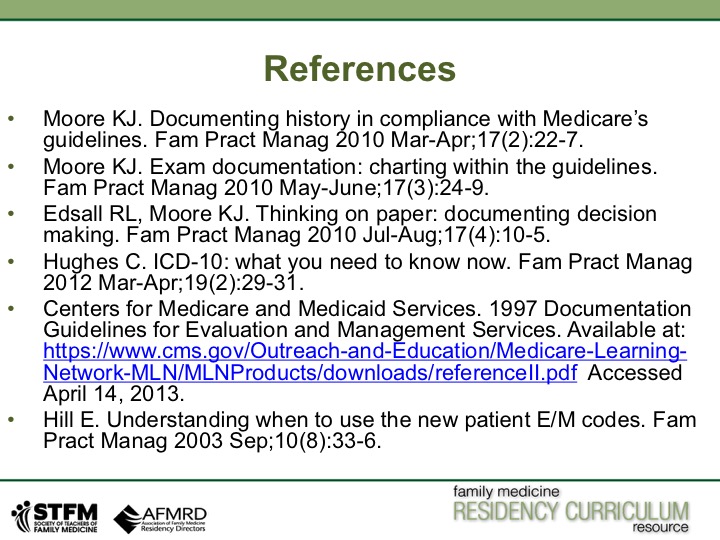
Core Family Medicine Topics
Prenatal Care: Each resident will rotate on the Maternity Care Service every 3-4 day, to gain experience all aspects of Maternity Care. The resident will spend time in the Prenatal Clinic, Centering Pregnancy, and even L&D and Triage. The central goal of the experience is to grow in Prenatal Care knowledge and skills, so the intern will be able to care for Prenatal patients during the rest of their year. To further help with this goal, you will have a session with Sarah Hollis who will go through the Prenatal Care Visit, including how to navigate Epic. In addition to the required experiences, the residents are required to complete the following:
Required Reading:
Canvas reading as below
Completion of the following Canvas Modules:
#1: Routine Prenatal Care
#2: Weight Gain and Obesity in Pregnancy
#3: Genetic Screening in Pregnancy
#4: Immunizations in Pregnancy
#5: Exercise in Pregnancy
Preventive Care:
Each resident is to complete the Preventive Care KSA (previously called SAMs or Module II) located on the ABFM website. The KSAs are extremely challenging and are truly intended for education, not as an evaluation. You should be fully prepared to get only 20-30% of the questions correct! The beauty of the experience is that after you complete the exam, it will have you go back through each question and provide you the necessary data to get the correct answer. The information they provide is outstanding: citations of studies with excellent overviews. We strongly recommend you sit down and complete the KSA in one sitting, then spend the rest of the month going through the questions you missed (2-3 a night) until finished. There is an associated patient simulation which you can also complete, but is not required for us.
Women's health preventive care is a specific area of focus during this month. During the month, you will work directly with a gynecologist 1-3 times to gain greater experience and comfort in this core skillset. The goal is to have 3 observed pelvic exams during the month rated at an independent level. The experience maybe with Dr. Rossi at Crossroad Health Center or Dr. Tobias (family physician) at the Good Sam Free Clinic.
Intro to Quality Improvement: Quality improvement is an integral part of medicine and unfortunately, is not something we often receive a lot of education about! To introduce you to the basic principles of QI, all of the interns will complete a PPM from the ABFM over the first 4 months of their residency (start in the Intro to family medicine month and complete it in the October month). The PPM's are prefabricated QI projects that will introduce you to key concepts and have you complete at least on PDSA cycle. Dr. Rich will be working with each of you to guide you through the process, starting with an Intro to QI during the Intern Orientation.
POCUS (Point Of Care Ultrasound): Your IFM rotation is the launching point for our longitudinal POCUS curriculum. Please read the "Welcome to" section on the Ultrasound/POCUS Rotation Webpage to familiarize yourself with the overall curriculum. During the month, you will be scheduled to meet with Dr. Collins to perform at least one FMC scan (Thyroid, using GE Logiq) and one inpatient scan (IVC, using Lumify); please complete the 2-hour learning module on POCUS (Module 1 located on the Ultrasounds POCUS Webpage) prior to the session if time allows.
Radiology Curriculum: The Radiology Curriculum is a longitudinal experience led by Dr. Mount. In this month, you will learn how to interpret a plain chest-ray and also learn how to select the correct test for different problems. You can find the pre-work assignments below or on the Radiology Page under Intro to Family Medicine Month. For the CXR component you will have a practice pre-test to do on your own, then you will schedule a time to meet with Dr. Mount to go through an oral exam (reading 5 chest x-rays). Dr. Mount has attached the grading rubric of what is expected for this exam (not as scary as it sounds). The "ordering the appropriate test" component has a practice test that is a wufoo exam to do on your own time then a final exam (each 10-12 questions). Both components need to be completed during your intro month. You will then have exposure throughout the year to radiology lectures and experiences on the inpatient service to reiterate the things you learned and hopefully solidify them even more. Dr. Mount will send more information on future curriculum pieces, but these two areas are the main focus of your intern year (with regard to radiology).
Reading a CXR:
Review Practice CxR Exam
Review Scoring rubric for oral exam
Complete oral exam with Dr. Mount prior to completion of your intro to FM month: Be sure to contact Dr. Mount early in the month to arrange a time to meet.
Selecting the appropriate imaging modality:
Review Radiology Appropriate Test Powerpoint with 10 cases (STOP AT CASE 10, you'll get the others in surgery rotation).
Take the practice test. You will get an email with the answers after you complete the test.
When you meet with Dr. Mount for oral exam on CXR, she will send the final exam for this component in email.
Operational Understanding of the FMC and Growing Your Patient Panel
Your home is the FMC and we want you to love it. Before you can really learn about how to be a physician, you need to understand the logistics of the FMC and Epic. It is hard to learn about DM when you are not even sure how to order a vaccine or check someone out. Quickly, all of your brain power gets sucked into completing these tasks which are absolutely necessary, but not truly patient care. The Intro to Family Medicine month will try to help get you well established and on your feet so you can concentrate on learning and on where to find something.
Methods:
1. One on One Sessions: Multiple times during the month you will be paired with a faculty member in the FMC. Please do not view this as you would have viewed it as a medical student: there are two major goals to these one on one sessions:
Grow in understanding of logistics of the FMC: They will guide you on how to use your MA, where to find forms or other resources, how to move a patient through the office, how to refer a patient, etc... This is what we want you to concentrate on during your time with them. We strongly recommend following the faculty and running Epic while they do the care: enter the orders, enter the referrals, complete the documentation, complete the billing-you will learn best by doing it. Now, you will likely learn some medicine along the way, but that is not the focus.
Grow your patient panel: You are strongly encouraged to take on patients who are seeing a faculty (always first ask the faculty and then offer to the patient). If you bond with a patient, ask them if they would like to follow up with you or tell them they are welcome to see you if the faculty is not available. If you are with an outgoing third year (those in July), be even more aggressive.
2. Patient Care time in the FMC: You will have multiple sessions in the FMC. This is really what is all about: caring for YOUR patients. When you see a new patient, be sure to make sure the patient knows you are their doctor. Be clear on this and tell them you are their doctor. Be sure to give them a card or have them write your name down in the address book or phone. If a patient has quite a few problems, be sure to have them follow up quickly (maybe even the following week).
3. FM Staff Session: You will have a sessions designated as "FMC Staff". During this session, you will work one on one with a MA for 2 hours, rooming patients and providing post-visit care. Following, you will spend 1 hour in the front office and then 1 hour in the back-office. Through this experience, you will better understand the role your FMC staff has in providing care in the FMC along with get to know the staff better.
4. InBasket Management: During the month, you will have two 2 hour sessions in which you work one-on-one with an attending to learn tips for safe, efficient, standardized management of the Epic InBasket and FMC mailbox. Full description of the time can be found here.
5. JIT Sessions: During the month, you will have time designated for JIT. This is your time to build your patient registry, develop new smart phrases, receive 'Just in Time Learning', work on in-basket management, and spend extra time getting to know your patients (you will find it can take time to really 'know' a new patient: use this time to clean up the chart, build the problem list as you would like it, and help make future care easier). You can also use this time to work on some of the asynchronous learning modules.
We are always looking to improve our Epic Training: Please identify areas you wished you would have been trained on or any changes we should make to our Epic Training. In October, you will choose a new skill to create your own JBS to help update the training for next year's class. Be on the look out for potential opportunities.
Home Visits
During your Intro to Family Medicine Month, you will have one half day to work directly with Dr. Goroncy and perform home visits. Home visits are wonderful opportunities to truly get to know your patients better along with caring for those who struggle to make it to the office. Please be sure to check your schedule on when you will be working with Dr. Goroncy and complete the pre-visit prep work.
Requirements:
Pre-Visit Prep:
Complete the Patch Match - This will take you through a interactive virtual home visit. Please complete the intro then choose Mrs. Woods (recently hospitalized) and Mr. Chaplain (falling).
Read the AFP house calls article and the House Calls Tip Sheet
During the visit: While you are performing the home visit, identify and explore one social determinant of health that is particularly impacting the patient.
Post-Visit
Complete a 1-2 page thoughtful personal reflection on the experience. You may want to reflect on what surprised you, what could be done differently and how it will impact your future care, or anything else meaningful from the experience. Be sure to comment on the social determinant of health you found to be impacting this patient. Upload the reflection through this link: Personal Reflection
Log the encounter in New Innovations under the procedure log